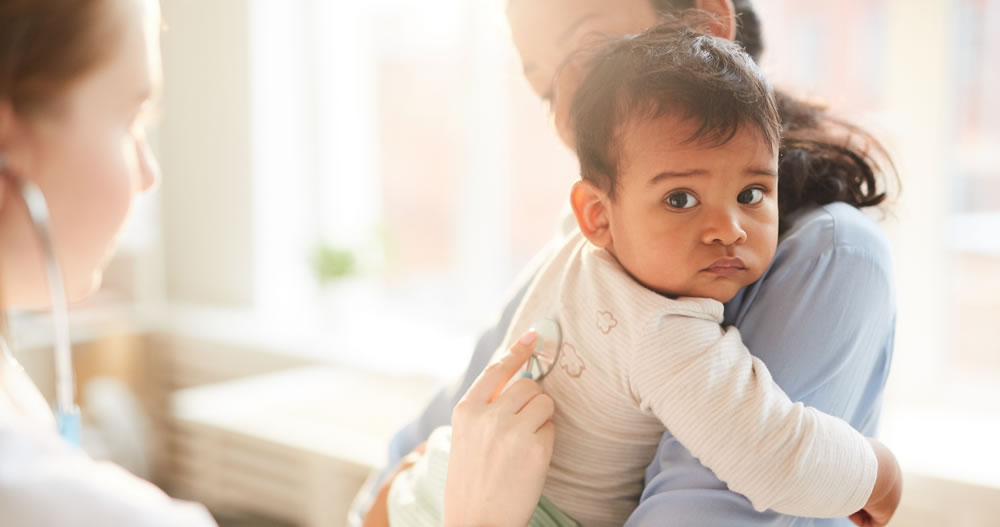Common illnesses that keep kids home from child care
Published on Wednesday, 12 August 2020
Last updated on Wednesday, 21 October 2020

Winter isn’t all sunshine and rainbows. The days are cold, the nights are long and to make things that bit more challenging, there are lots of lurgies (undetermined illnesses) doing the rounds.
It’s common for viruses, infections and bugs to jump from child to child during the winter months, so let’s see what ailments are most likely to keep your child home and how you can help prevent the spread of illness in the early childhood education (ECE) setting.
What illnesses are most likely to keep kids home from care?
Kiwi Families says that the 10 most common childhood illnesses are:
- Croup
- Ear infection
- Fever
- Gastroenteritis (gastro)
- Hand, foot and mouth disease
- Influenza (flu)
- Pneumonia
- Roseola
- Slapped Cheek (human parvovirus infection)
- Sore throat
These illnesses all have the power to make little ones feel poorly, and when a child is contagious or not able to participate in ECE activities, they also have the power to keep kids home from care.
In Australia, the KindyNow child care platform has calculated that 10 ailments accounted for 61 per cent of ‘absences due to illness’ over winter, and the following culprits also keep Kiwi kids away from ECE services:
- The common cold
- Fever
- Cough
- Conjunctivitis
- Flu
- Viral infection (other)
- Hand, foot and mouth disease
- Ear infection
- Gastro
- Vomiting
Of course, the list doesn’t end there. There are several conditions that call for exclusion from child care, and in recent times, we’ve seen ECE absences in response to measles and COVID-19.
As a parent, how can you help prevent the spread of illness?
There’s no cure for the common cold and no sure-fire way to keep your youngster well through a child care winter, but there are three key things you can do to limit the spread of illness at their ECE service and beyond:
-
Keep your child home when they’re sick
Illnesses spread easily when sick children cough, sneeze, rub their eyes, share toys/food/equipment and generally play in close proximity. For this reason, it’s important to keep your child home when they have an infectious illness.
The type of sickness your child has will dictate the length of time they should stay away from their ECE service, and the government’s exclusion periods for conjunctivitis, diarrhoea and vomiting illnesses, hand, foot and mouth disease, influenza and other infectious diseases can be found here.
Generally speaking, your child also shouldn’t go to care if they have an illness that prevents them from comfortably taking part in activities at their service.
You’re advised to check your child care provider’s policy on illness before dropping your little one off with symptoms, and to make a contingency plan for sick days well before your child actually gets sick.
-
Get your child immunised
Although there isn’t a vaccine available for every ailment, immunisation protects children against a range of serious diseases and stops these illnesses from spreading through ECE services and the greater community.
You’re not legally required to immunise your child, but the Ministry of Health does encourage you to complete your child’s immunisations on time and in full before they start at an ECE service.
This doesn’t cost anything, because our National Immunisation Schedule provides free jabs for babies and children from the age of six weeks to four years (then at the ages of 11 and 12).
Your ECE service keeps an Immunisation Register to track the vaccine status of each child, and there may be times when an unvaccinated child is asked to stay home (e.g. if there’s an outbreak of a vaccine-preventable disease at the service).
If you like, you can get independent advice about vaccinations by calling the Immunisation Advisory Centre on 0800 IMMUNE (0800 466 863) or checking their website.
-
Practice good health and hygiene
COVID-19 has taught us a lot about soap, water and hand sanitiser, and thorough handwashing is vital whether we’re in the midst of a pandemic or not.
To help stop the spread of illness, we should all wash our hands regularly and dry them well, including after using the bathroom, before and after eating, and after coughing or sneezing.
Make sure you follow handwashing procedures at child care drop-off and pick-up, and supervise your child’s handwashing to ensure they use enough soap and running water, and wash all the bits of their hands (including between the fingers).
Cough and sneeze etiquette is also key. Teach your child to cough/sneeze into a tissue or their elbow, rather than into the air or another person’s face, and make sure they bin the tissue and wash their hands straight afterwards.
All in all, sick days are important for your child’s recuperation and for your service’s healthy operation, immunisation is a powerful safeguard against serious illness, and good hygiene is essential in preventing the spread of lurgies. So, let’s all work together to limit the impact of common sniffles and other ailments in the child care environment.
Further reading
Immunity boosters for kids in care
Related Articles

Sick Days and Emergency Child Care
What to do with your sick child when you have to go to work including emergency and back up care options and why it’s important to have a plan!

How measles can affect your family
Protected Together #Immunise' – is particularly pertinent in light of a recent measles outbreak in the Canterbury district.

The age old problem of nappy rash
How modern nappy manufacturers are looking at high-tech ways to keep little bottoms clean and dry.
